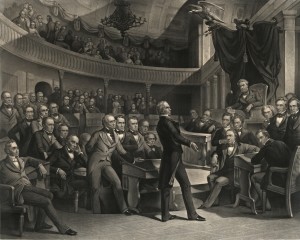 An important vote on H.R. 5 is scheduled Friday. While the League of Women Voters supports national curriculum guidelines and assessment of skills that compares the student achievement across similar districts, it also supports local implementation of the curricula and skills. The operative definition of the League’s position is that all children should have access to an equitable, quality education. To what extent does this bill have the desired result?
An important vote on H.R. 5 is scheduled Friday. While the League of Women Voters supports national curriculum guidelines and assessment of skills that compares the student achievement across similar districts, it also supports local implementation of the curricula and skills. The operative definition of the League’s position is that all children should have access to an equitable, quality education. To what extent does this bill have the desired result?
The bill severely cuts the role of the U.S. Department of Education. It also freezes funding until 2021. Finally, it increases support for charter schools and allows Title I funding for low income schools to be moved to other schools. The bill has generated controversy. Specific requirements follow.
If you wish to contact your legislators, a contact list is below.








